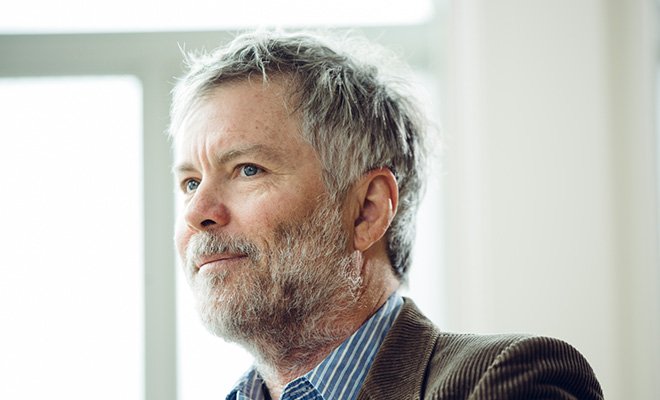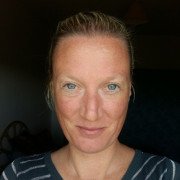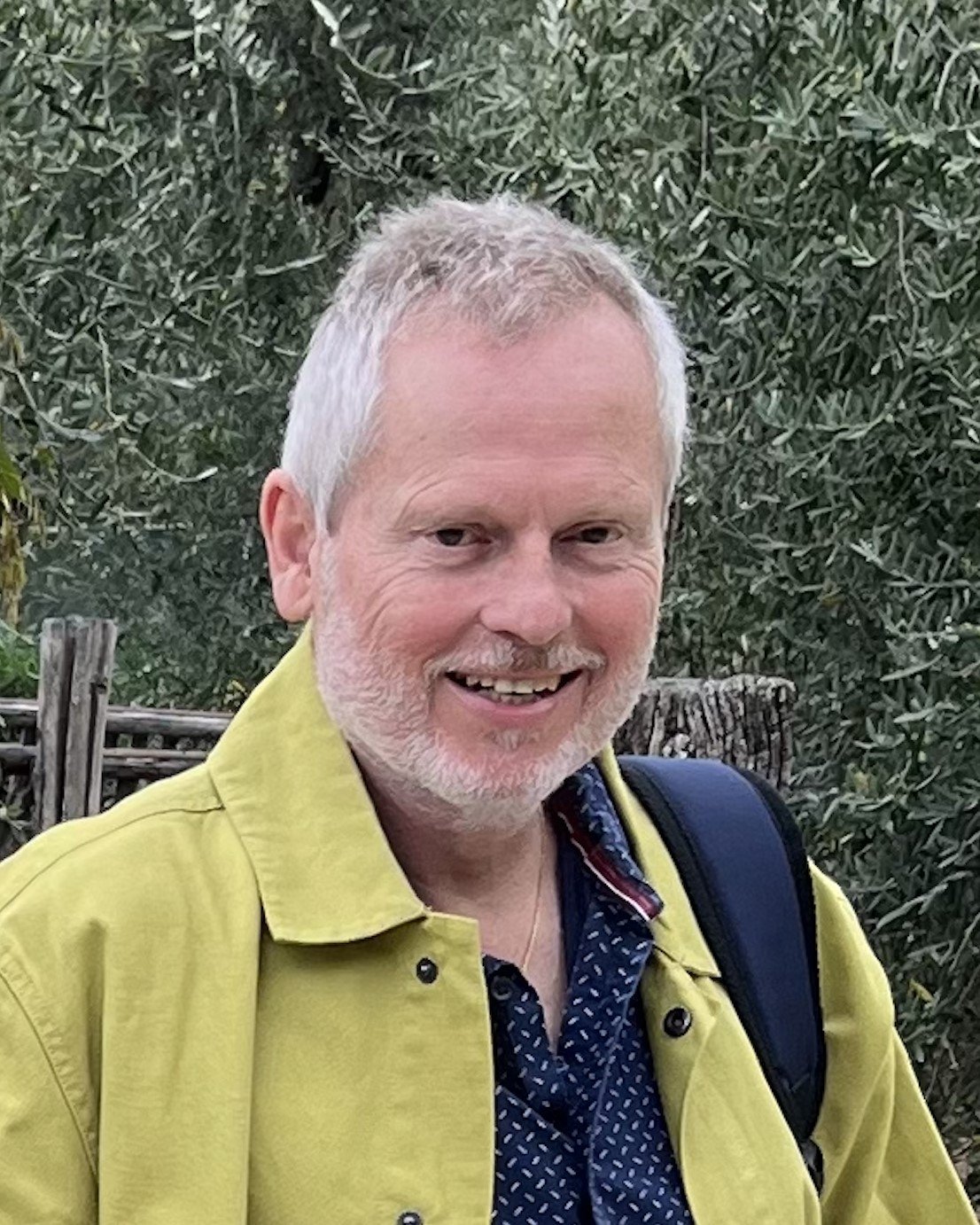
Our Teachers
Alice Oswald
Alice Oswald co-led MA poetics of Imagination at Schumacher College and Dartington Arts School. She studied Classics at Oxford and then trained as a gardener. She has written six collections of poetry.
In 2019, she took up the post of Oxford Professor of Poetry. Her most recent collection, Nobody, reworks Homer's The Odyssey. Her first collection, The Thing in the Gap-Stone Stile (1996), won the Forward poetry prize for best first collection. In 2002, she won the TS Eliot for Dart, about the river in Devon.
Dr Emma Kidd
Emma co-led the Ecological Design Thinking program at Schumacher College, focusing on meta-design as a practice that fosters awareness of the interconnectedness between being, knowing, and doing. She is passionate about practices that cultivate attention and awareness, allowing for a deeper understanding of life—human and non-human—and reclaiming experiential, embodied ways of knowing, in contrast to modernity’s abstract, life-blind frameworks.
After a successful international career in clothing design and product development, Emma joined Schumacher College in 2008 as a student in the Master’s programme in Holistic Science. She specialized in Goethean approaches to understanding nature, particularly the work of Henri Bortoft on the nature of wholeness. Emma continues to explore Bortoft’s Dynamic Way of Seeing, which became the foundation of her first book, First Steps to Seeing: A Path Towards Living Attentively.
Her doctoral research focused on applying holistic principles through a phenomenology of practice. She designed a public intervention aimed at reducing the overconsumption of clothing. Emma is currently working on her second book, which explores how to transcend the limitations of modernity by reconnecting with, thinking with, and designing with life.
Emma Bush
Emma works in the field art and ecology making performance, site-specific walks, writing and workshops. Emma’s practice maps processes of exchange between ourselves and others, including animals, weather systems, oceans, forests, villages, cities, countries. Emma’s areas of special interest include; listening, voice, dialogue, encounter, place, story, memoir, walking and sensory observation. Emma loves supporting makers in development of creative practice in all its forms and has strong interest and experience in developing critically supportive contexts and communities to strengthen learning, practice, interdisciplinary experimentation, and research.
Emma’s performance work, writing and workshops have been shared at Battersea Arts Centre, London, The Green Room, Manchester, Arnolfini, Bristol and in diverse sites including forest, village, field, old school building, empty barn, kitchen, garden, and coastal. Emma studied BA Theatre (2002) and MA Art and Ecology (2008) at Dartington College of Arts. Emma’s practice as research PhD explores: Memoir, Materiality and the Intimate Encounter. Emma has worked as Senior Lecturer for MA Poetics of Imagination at Dartington/Schumacher since its inception in 2020, previously taught Fine Art at Plymouth University (2018 -2022), and has taught at numerous other institutes since 2002.
Jay Tompt
Jay led the MA Regenerative Economics program at Schumacher College. He is a co-founder of several place-based regenerative economics initiatives. He is also an associate lecturer in economics at Plymouth University.
With over two decades of experience in grassroots 'new economics,' Jay has worked as an entrepreneur, community organiser, consultant, and teacher. Since 2016, he has taught 'new economics' at Plymouth University, including an applied economics module he designed for undergraduates, Citizen-led Economics - Post Crisis, Post Growth, Post Capitalist. He also co-designed and delivered Skilling up for Economic Change workshops, helping local economy activists and community initiatives worldwide from 2013 to 2019. These courses prepare individuals to lead economic and social change in their own enterprises and communities.
Jay has a decade of experience in the Transition Towns movement and co-founded the Totnes REconomy Project, fostering regenerative entrepreneurship since 2011. He also co-developed the Local Economic Blueprint course and handbook for community groups. Recently, he co-founded Local Spark: Torbay Community Enterprise CIC, a social enterprise catalysing citizen-led economic change in a coastal urban context. Jay holds an MBA and a BA in Philosophy and is a member of the International Society for Ecological Economics.
Dr Mona Nasseri
Mona led the MA Ecological Design Thinking programme at Schumacher College and served as the Head of Research as well.
As a researcher herself, she has been collaborating with interdisciplinary and international research teams on various participatory projects, primarily related to food, land, and water in East and West Africa. Her primary responsibility is to engage local communities in co-designing pathways for change, ensuring that local problems are addressed through local wisdom.
Mona has a background in craft and design. After completing an undergraduate degree in Craft and Material Culture at the University of Art in Tehran, Iran, she earned an MDes and PhD in Design at the University of Dundee, Scotland. Her doctoral thesis explores the role of an unmediated relationship with the environment in the evolution of human consciousness. Mona’s aspiration is to reintegrate the embodied and relational aspects of craft practice into regenerative design processes, particularly within participatory approaches to Transition.
Dr Rachel Sweeney
Rachel led the MA Movement, Mind, and Ecology programme at Schumacher College. A practicing movement artist, her research focuses on transdisciplinary approaches to decolonizing body-place relationships, creatively engaging with cultural heritage, and exploring sustainability discourses. Rachel holds a BA in Theatre from Dartington College of Arts and an AHRC-funded PhD from Middlesex University, where she explored site-based approaches to movement training.
From 2010 to 2021, Rachel was Head of Dance Studies at Liverpool Hope University. She has also served as a Visiting Fellow at the Humanities Research Centre at the Australian National University and as a Centre Fellow for the Centre for Sustainable Futures at the University of Plymouth. Rachel is currently a member of the European experimental heritage project Karum Creevagh. Her research has received support from international bodies such as the Arts and Humanities Research Council UK, Creative Ireland, and CSIRO Australia, as well as local organizations including Dartmoor National Park Authorities, Teignmouth County Council, and Dance in Devon.
Professor Roberto Fraquelli
Roberto co-led MA Ecological Design Thinking at Schumacher College. He designs interactive products, spaces and experiences that allow participants to tune into their innermost curiosity and creativity. Through a sideways approach and gently playful interrogation, Roberto helps participants uncover novel or forgotten pathways to a deeper and more empathetic understanding of self, other, and the world; both the one we live within and the one we long for.
He teaches regenerative design methodologies and facilitates workshops, seminars and program that focus on realising our ecological potential and tuning into our relationships with all living systems. His practice-based inquiry embraces hand-made attitudes that celebrate our whole being in harmony and balance. A master of play, Roberto can be relied upon to get groups moving, making and breaking new ground.
Satish Kumar
Satish is a Visiting Fellow and was the originator and co-founder of Schumacher College.
Satish Kumar is the Founder of Schumacher College in the United Kingdom. He was Editor of Resurgence magazine for 40 years. The Guardian newspaper described this magazine as “the artistic and spiritual flagship of the Green Movement”.
A former Jain monk, Satish Kumar went on an international pilgrimage for peace. He, with a friend, walked 8000 miles from New Delhi to Moscow, Paris, London, and Washington. Along the way, he met Bertrand Russell and Martin Luther King. Satish is the author of ten books including his autobiography, No Destination. Other books include Elegant Simplicity, Soil, Soul, Society, and Radical Love. Satish is a lifelong activist for environmental sustainability, social justice, and world peace. He is the recipient of the Goi Peace Prize 2022.
Dr Valentin Gerlier
Dr Valentin Gerlier, scholar, songwriter, and musician, led the MA Poetics of Imagination programme at Schumacher College and Dartington Arts School. He is also a Tutor and academic board member at the Temenos Academy, a Research Associate at the Margaret Beaufort Institute, Cambridge, and a Visiting Lecturer at several institutions. His latest book is Shakespeare and the Grace of Words (Routledge, 2022).
Valentin's teaching and writing span a wide range of subjects, including Shakespeare, William Blake, Dante, Rainer Maria Rilke, Kathleen Raine, Samuel Taylor Coleridge, W.B. Yeats, Ivan Illich, Heraclitus, John Scotus Eriugena, Nicholas of Cusa, and the Western contemplative and mystical traditions. His current research explores the poetic wisdom of nature in pre-modern texts (e.g., Eriugena, Hildegard of Bingen, and Bernardus Sylvestris), contemplative philosophies of nature, and the poetics and metaphysics of ritual and liturgy.
Valentin holds an MA from the University of Kent and a PhD from the University of Cambridge. He has published in journals such as Journal of the Philosophy of Education, Heythrop Journal, Religions, Medieval Mystical Theology, Temenos Academy Review, and Modern Theology.
Dr Martin Shaw
Dr Martin Shaw is a writer, mythographer, and Christian thinker. He founded the MA Myth and Ecology and MA Poetics of Imagination programmes at Schumacher College and Dartington Arts School. Author of seventeen books, Martin is the director of the Westcountry School of Myth and founder of the Oral Tradition and Mythic Life courses at Stanford University. His book Bardskull was described as “rich and transgressive” by Erica Wagner in The Sunday Times and was Book of the Day in The Guardian. A hugely respected oral storyteller, Shaw has toured internationally numerous times, and led symposiums at both Oxford and Cambridge University, Robert Bly describing him as “a true master, one of the very greatest storytellers we have.”
Martin completed his PhD in patterns of metaphor within rites of passage, specifically working with Irish and Siberian folklore. His Celtic poem translations with Tony Hoagland have been published in Poetry International, The Sun, Orion, The Mississippi Review and many others, and his catalogue and conversation with Ai Weiwei was published by the Marciano Arts Foundation. His book of Lorca translations (with Stephan Harding) are entitled Courting the Dawn, and anthology of the Irish philosopher John Moriarty is A Hut At The Edge Of The Village. His works include Scatterlings, Stag Cult, Courting the Wild Twin and Smoke Hole, his first, A Branch From The Lightning Tree, winning the Nautilus Book Award. Lightning Tree was the first of its kind to weave myth and rites of passage so overtly together proving influential to a whole generation of storytellers and wilderness guides.
Martin Shaw is a guest teacher at Schumacher Wild.














